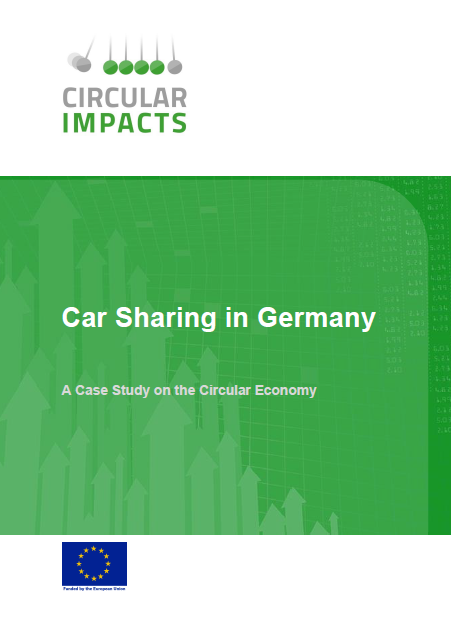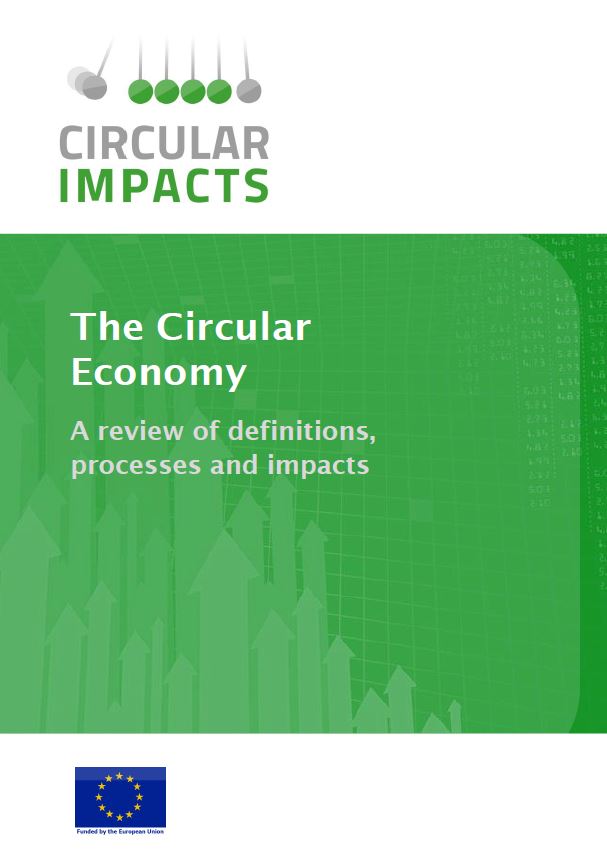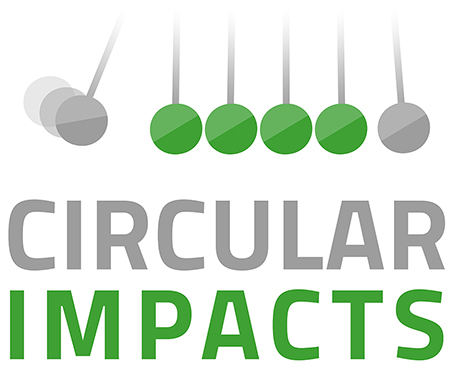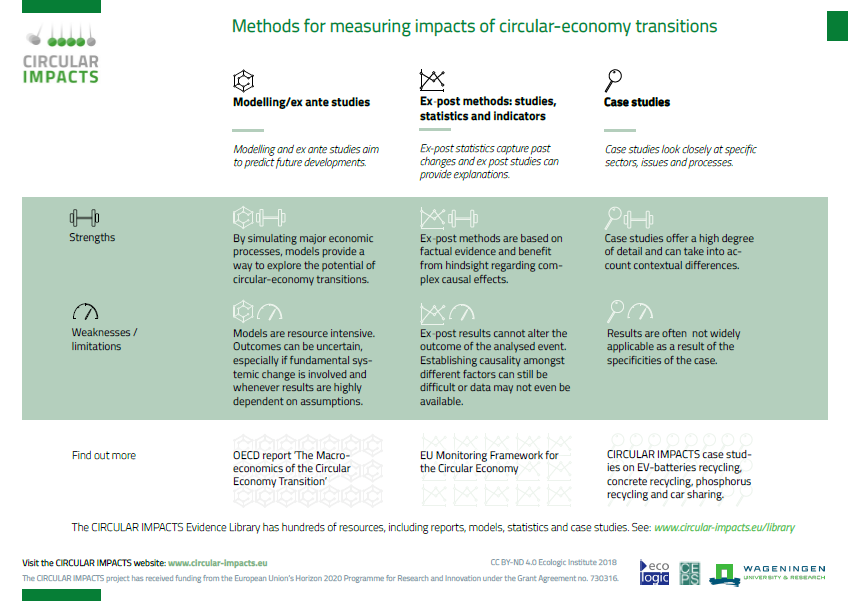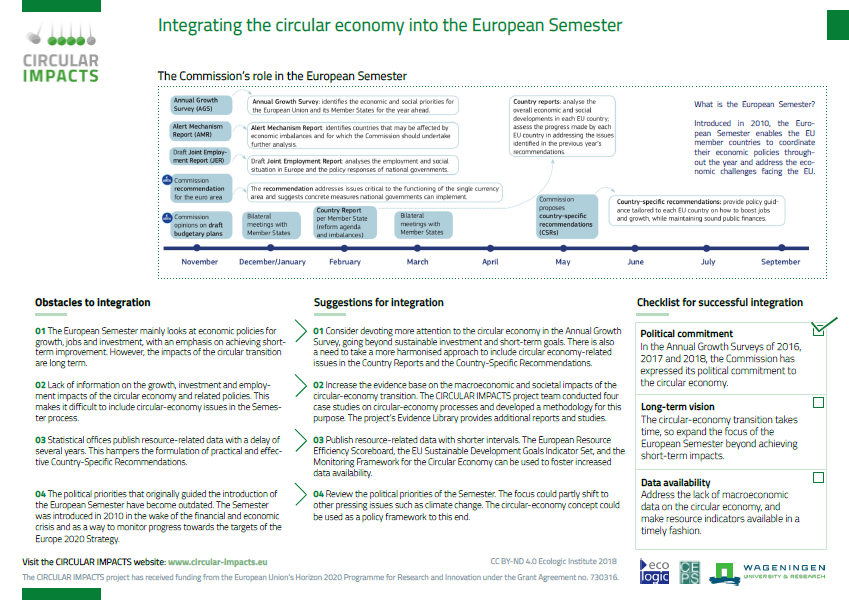Sustainable Building
A Case Study on Concrete Recycling in France
- Publikation
- Zitiervorschlag
Duin, Laurens und Aaron Best 2018: Sustainable Building: A Case Study on Concrete Recycling in France, Ecologic Institut: Berlin.
Dieses Fallstudienpapier konzentriert sich auf das Betonrecycling in Frankreich als Mittel zum Verständnis der zirkulär-wirtschaftlichen Übergänge im Baustoffsektor. Die EU, einschließlich Frankreichs, produziert jährlich große Mengen an Bau- und Abbruchabfällen und strebt eine verstärkte Wiederverwendung dieser Materialien an, wodurch Deponien und negative Umweltauswirkungen reduziert werden. Das Recycling von Beton wird als ein Weg gesehen, um zu diesen Zielen beizutragen, indem sichergestellt wird, dass ein Teil dieser Abfälle in ein Produkt mit Wert umgewandelt wird. Derzeit recycelt Frankreich Bau- und Abbruchabfälle nicht so viel wie einige andere Mitgliedstaaten. Dieses Fallstudienpapier führt eine Szenarioanalyse durch, die zwei Zukunftsszenarien für 2030 vergleicht und Einblicke in wichtige ökologische und wirtschaftliche Auswirkungen einer erhöhten Betonrecyclingquote in Frankreich gibt.
- Sprache
-
Englisch
- Autorenschaft
-
Laurens Duin
- Credits
Unter Beteiligung von: Marius Hasenheit (Ecologic Institut)
- Finanzierung
-
Europäische Kommission, Exekutivagentur für kleine und mittlere Unternehmen (EASME), International - Jahr
- Umfang
- 59 S.
- Projekt
- Projekt-ID
- Inhaltsverzeichnis
-
Gesamtes Inhaltsverzeichnis
Executive Summary
1 :: Introduction
2 :: Step 1: Defining the Baseline
2.1 The role of concrete in Europe
2.1.1 The environmental, economic and social footprint of concrete
2.2 Producing concrete with quarried aggregates
2.2.1 Ready-mix concrete
3 :: Step 2: Defining the New Business Case
3.1 The benefits of concrete recycling
3.2 Relevant European and national policy
3.2.1 The European Waste Framework Directive
3.2.2 The EU Construction and Demolition Waste Management Protocol
3.3 The French Energy Transition for Green Growth Act
3.4 Producing concrete with recycled aggregates
3.4.1 Quality concerns
4 :: Step 3: Changes in the Key Sector in France
4.1 The concrete sector
4.1.1 Cement industry
4.1.2 Aggregates industry
4.2 Scenario building
4.2.1 Key data and assumptions
4.2.2 Comparing the two scenarios
5 :: Step 4: Expected Effects on Other Parts of the French Economy
5.1 Total demand for aggregates
5.2 Construction sector
6 :: Step 5: The Impact on French Society
6.1 Possible disruptive effects
7 :: Step 6: Are Alternatives Available?
7.1 An increased use of other building materials
7.2 Reusing concrete in original form
8 :: Step 7: Policy Options
8.1 Enabling factors
8.1.1 European and national commitment
8.1.2 Improved CDW management
8.2 Barriers
8.2.1 Limited information on the pricing of CDW recycled materials
8.2.2 Little trust in the quality of CDW recycled materials
8.2.3 Lack of clarity on liability related to CDW recycled materials
8.3 Policies for consideration
8.3.1 Implementation of end-of-waste criteria for waste-derived aggregates
8.3.2 Landfill restrictions and taxes
8.3.3 Taxing quarried aggregates
9 :: Step 8: Overall Conclusions
9.1 Results
9.2 Policy recommendations
10 :: Technical Documentation
10.1 Measuring the different impacts
10.1.1 Environmental impacts
10.1.2 Numerical analysis
10.1.3 Interpolations of life-cycle assessment data
11 :: References
12 :: List of Partners - Schlüsselwörter
-
Frankreich
Ecologic Institute 2016: CIRCULAR IMPACTS Online Library. URL: http://circular-impacts.eu/library
Konferenz:Auswirkungen des Übergangs der Kreislaufwirtschaft in Europa – CIRCULAR IMPACTS Abschlusskonferenz
- Datum
-
- Ort
- Brüssel, Belgien
Rizos, Vasileios et. al. 2017: The Circular Economy. A Review of Definitions, Processes and Impacts.

